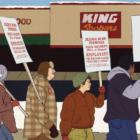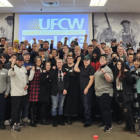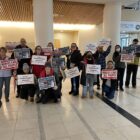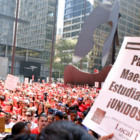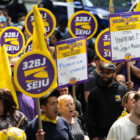International
No Wheat, Milk, Rice, Medicines: How the U.S. and Israel Are Starving Yemen
|
This article is a joint publication of Workday Magazine and In These Times. It is the second part in a series about how U.S. policy impacts working-class people in Yemen. The first one was published in 2023 and showed how the Biden administration was contributing to policies that made it near impossible for poor people in Yemen to get medical care to treat dire health conditions. At Workday Magazine, we report on the lives of poor and working people not only in Minnesota and the Midwest, but around the world. Most of Mohammed Mohsen’s neighbors live in a state of deprivation and hunger, reliant on the World Food Programme for daily survival.



